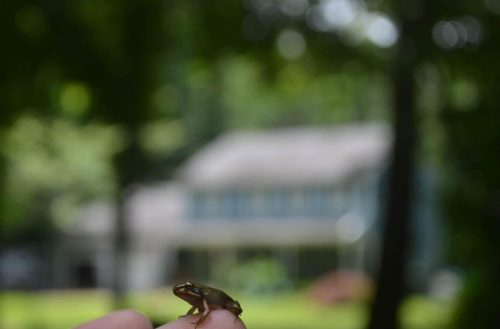Has road salt ever saved you from slipping on ice? While the salt might have saved you from a fall, human interference in the natural habitat can lead to detrimental effects in our neighborhood animal populations. Researchers at the Yale School of Forestry and Environmental Studies have found that road salt causes frog sex ratios to change.
The researchers reared frogs in multiple 500-liter tanks containing various levels of road salt and leaf litter to mimic a typical forest pond. In the absence of salt, frogs show a female-biased sex ratio of 63% female. They found that when frogs are exposed to road salt, the percentage of females can decrease by up to 10%. Not only are there fewer females, but the remaining females are smaller and likely carry fewer eggs. The scientists conclude that this could be due to elements such as sodium binding to cell receptors and mimicking testosterone, triggering masculinization.
Millions of tons of salt are dumped on roads in the United States every year in the winter to prevent snow or rain from freezing and potentially causing car accidents, and this can cause permanent alterations in the frog population. Lead author of the study and Yale Forestry and Environmental Studies (F&ES) graduate student Max Lambert explained that these results have implications beyond frog sex ratios: “The conclusions point to the fact that daily use chemicals are altering sex-hormone pathways.” In a broader health perspective, this means that “benign” chemicals can have relevant hormonal effects. Some research suggests, for instance, that repeated exposure to chlorine, commonly found in drinking water and swimming pools, is associated with hypothyroidism in people.
The findings of this study point to the importance of understanding the chemicals in our surroundings, as they can affect multiple physiological pathways in the body, whether human or frog. As for helping out our frog neighbors, possible solutions would be to reduce salt usage or find alternatives during the winter.

